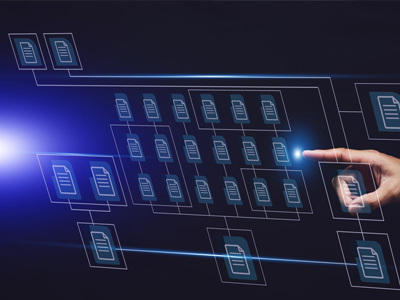Breaking Data Silos: How GDI is Transforming Access to Geospatial Information in India
-
CDPG
-
October 27, 2025
-
Data Privacy
-
0 Comments
Breaking Data Silos: How GDI is Transforming Access to Geospatial Information in India Authors: Bryan Paul Robert, Mahidhar Chellamani, Jyotirmoy Dutta For years, some of India’s most valuable geospatial datasets remained scattered across government departments, research institutes, or private organizations. They held immense potential to transform logistics, strengthen climate resilience, and support smarter urban planning, but they remained difficult to …
Continue Reading
Adaptive Self-Distillation for Minimizing Client Drift in Heterogeneous Federated Learning
-
CDPG
-
February 7, 2025
-
Data Privacy
-
0 Comments
Adaptive Self-Distillation for Minimizing Client Drift in Heterogeneous Federated Learning Authors: M. Yashwanth, G. K. Nayak, A. Singh, Y. Simmhan, A. Chakraborty Federated Learning (FL) is a machine learning paradigm that enables clients to jointly train a global model by aggregating the locally trained models without sharing any local training data. In practice, there can often be substantial heterogeneity (e.g., …
Continue Reading
Privacy-Preserving Data Quality Assessment for Time-Series IoT Sensors
-
CDPG
-
February 7, 2025
-
Data Privacy
-
0 Comments
Privacy-Preserving Data Quality Assessment for Time-Series IoT Sensors Authors: N. Chakraborty, A. Sharma, J. Dutta. H. D. Kumar This paper proposes a novel framework for automated, objective, and privacy-preserving data quality assessment of time-series data from IoT sensors deployed in smart cities. We leverage custom, autonomously computable metrics that parameterise the temporal performance and adherence to a declarative schema document …
Continue Reading
Building a Privacy Web with SPIDEr – Secure Pipeline for Information De-Identification with End-to-End Encryption
-
CDPG
-
February 3, 2025
-
Data Privacy
-
0 Comments
Building a Privacy Web with SPIDEr – Secure Pipeline for Information De-Identification with End-to-End Encryption Authors: N. Chakraborty, A. Tandon, K. Reddy, K. Kirpekar, B. Robert, H. Kumar, A. Venkatesh, A. Sharma Data de-identification makes it possible to glean insights from data while preserving user privacy. The use of Trusted Execution Environments (TEEs) allow for the execution of de-identification applications …
Continue Reading
Optimal Tree-Based Mechanisms for Differentially Private Approximate CDFs
-
CDPG
-
February 3, 2025
-
Data Privacy
-
0 Comments
Optimal Tree-Based Mechanisms for Differentially Private Approximate CDFs Authors: V. A. Rameshwar, A. Tandon, and A. Sharma This paper considers the epsilon-differentially private (DP) release of an approximate cumulative distribution function (CDF) of the samples in a dataset. We assume that the true (approximate) CDF is obtained after lumping the data samples into a fixed number K of bins. In …
Continue Reading
Enhancing MOTION2NX for Efficient, Scalable and Secure Image Inference using Convolutional Neural Networks
-
CDPG
-
February 3, 2025
-
Data Privacy
-
0 Comments
December 2023 Enhancing MOTION2NX for Efficient, Scalable and Secure Image Inference using Convolutional Neural Networks Authors: H. Kallamadi, R. Burra, S. Mittal, S. Sharma, A. Venkatesh, A. Tandon This work contributes towards the development of an efficient and scalable open-source Secure Multi-Party Computation (SMPC) protocol on machines with moderate computational resources. We use the ABY2.0 SMPC protocol implemented on the …
Continue Reading
A Contributory Public-Event Recording and Querying System
-
CDPG
-
January 23, 2025
-
Data Privacy
-
0 Comments
December 2023 A Contributory Public-Event Recording and Querying System Authors: Arun Joseph, Nikita Yadav, Vinod Ganapathy, Dushyant Behl CCTV (Closed-Circuit Television) systems are commonly used for security and surveillance. They provide a visual record of events, which can be used to monitor criminal activity, support investigations, and improve public safety. Many cities have implemented a number of cameras for surveillance, …
Continue Reading
Integrating Crypto-Based Payment Systems for Data Marketplaces: Enhancing Efficiency, Security, and User Autonomy
-
CDPG
-
January 23, 2025
-
Data Privacy
-
0 Comments
December 2024 Integrating Crypto-Based Payment Systems for Data Marketplaces: Enhancing Efficiency, Security, and User Autonomy Authors: V. Walunj, V. Rajaraman, J. Dutta, A. Sharma Data exchanges as Digital Public Infrastructures drive data-driven economies by enhancing efficiency, enabling revenue streams, and facilitating data monetization. This work explores integrating crypto-based payments into platforms like IUDX and ADeX, offering benefits such as enhanced …
Continue Reading
What makes consent meaningful?
-
CDPG
-
January 10, 2025
-
Data Privacy
-
0 Comments
June 2024 What makes consent meaningful? Authors: Asilata This paper seeks to examine the concept of meaningfulness of consent with a focus on consent in digital transactions. To that end, it proposes a “consent matrix”, depicting the structure of consent transactions across two dimensions- the realm of consent-objects and the modes of obtaining consent. The matrix maps the two dimensions …
Continue Reading
Consent Service Architecture for Policy-Based Consent Management in Data Trusts
-
CDPG
-
January 10, 2025
-
Data Privacy
-
0 Comments
Jan 2024 Consent Service Architecture for Policy-Based Consent Management in Data Trusts Authors: Balambiga, Rohith, Srinath, Santosh, Srinivas Data trusts handle data in a fiduciary capacity for data owners, allowing them to process, aggregate and share data with other stakeholders within an overarching legal and ethical framework. One of the primary challenges of data trusts is consent management. This paper …
Continue Reading





















































































